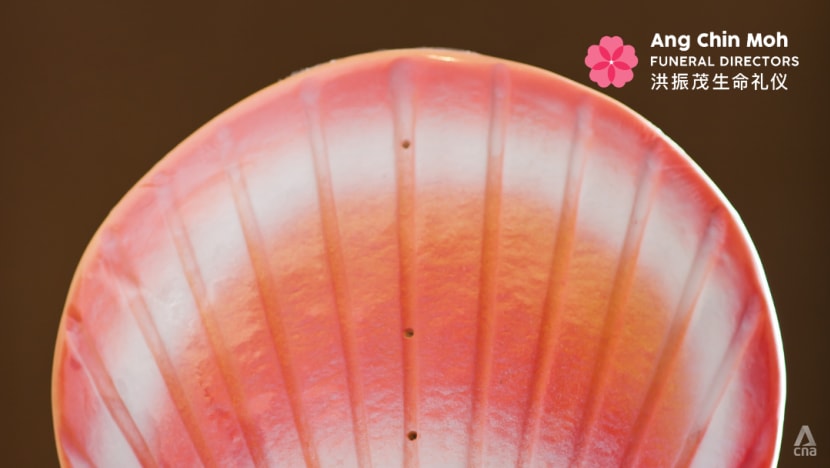The Climate Conversations: What is a ‘green’ funeral?
Even in death, humans can look for and choose to have an eco-friendlier way to say goodbye. On The Climate Conversations podcast, host Julie Yoo speaks to the man in charge of one of the oldest funeral companies who believes that “the journey to the end matters equally as well”.

Biodegradable urn (Photo: Ang Chin Moh Funeral Directors)
SINGAPORE: When Mr Ang Ziqian took over his family’s funeral business, laying the dead to rest involved quite a lot of carbon emissions – from huge conventional caskets and cremation (which releases greenhouse gases) to land cleared for burials.
“I entered the profession in 1995. (Back then) it was very traditional,” said the managing director at Ang Chin Moh Group.
In those days, he added, most people opted for burials. Today, about 82 per cent of the dead in Singapore are cremated and practices like sea scattering of the ashes have become commonplace.
But urns made of porcelain, granite or marble do not dissolve or break down in water and are bad for the environment, said Mr Ang.
“I felt that it actually affects the marine biodiversity and the environment,” he added.
So he went in search for a better solution. The result? Biodegradable urns made of recycled paper and paper clay which are shaped to look like seashells.
“The family members place the cremated remains into the urn, lower it down to the sea surface. It floats for about 20 to 45 minutes before it sinks to the bottom of the seabed and slowly disintegrates.”
“It brings out the green consciousness of people,” he said. “The journey to the end matters equally as well.”
Here are some highlights of the conversation:
'AQUAMATION' INSTEAD OF CREMATION?
Ang: “(Now) there is a lot of buzz over this green word called aquamation … Aquamation is actually alkaline hydrolysis. It uses water and strong chemicals, for example, sodium hydroxide and potassium hydroxide ... Some might say that (aquamation) is very green, you're not burning more fuel for the cremation. But you're also actually using energy for this process as well.”
'HUMAN COMPOSTING'?
Ang: “Human composting is one way that you introduce ... materials to accelerate the entire process (of decomposition). And this process requires energy as well. But it shortens the entire period to just a few months.”
Ang: “If (human composting) is something that people want, there must be more studies into this and to see how it can be implemented. But of course, in all decisions … there are also a lot of trade-offs.”
WILL GREEN FUNERALS TAKE OFF IN SINGAPORE?
Ang: “It goes back to demand and supply. Funeral directors generally provide what the family wants. When there's higher demand, naturally, there will also be more products available … To have greater adoption, (green products have to) evolve in terms of technology and also how it's being done.”
Ang: “The green adoption by people here (in Singapore) is not necessarily the young … We do have people who are senior, and they opt for (green funeral options) not because of the green movement, (but) just because (the deceased) enjoyed going to forests, hiking, and he just wants to do it that way.”
ADVICE ON PLANNING YOUR OWN FUNERAL?
Ang: “Pick something that represents your life … and how you want to be remembered. There is no right and wrong when it comes to funerals. No two funerals are the same.”
Ang: “I think it's important to convey these wishes to the people that you love, and not just keep them to yourself, because you need someone to execute them on your behalf.”
Ang: “Because when you leave this world, I'm sure that everyone wants their loved ones to have a meaningful life after our departure.”
For the full conversation, listen to the podcast episode here:












